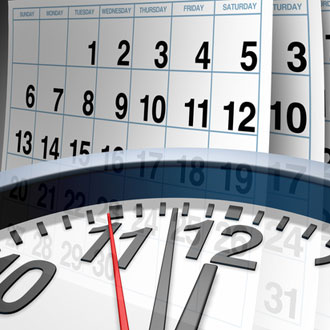Offering longer GP appointments does not significantly improve the patient’s experience, a study funded by the Department of Health has concluded.
The study, published in the BJGP, found longer appointments did not increase patients’ ratings related to either trust and confidence in the doctor; communication; or overall satisfaction.
The research, which comes as GP leaders including RCGP and GPC are campaigning for longer consultations, was undertaken by a team of University of Cambridge researchers including Professor Martin Roland, emeritus professor of health services research, a former GP and Government adviser on primary care strategy, and funded by the National Institute for Health Research.
The study measured consultation time by video recording 440 face-to-face consultations in 13 general practices from 45 GPs in England. Patients who consented to being filmed then filled in a questionnaire afterwards to measure their experience.
On a scale from 0-100, patients on average rated the ‘communication’ aspect a statistically insignificant 0.02 higher per extra minute of consultation; the ‘trust and confidence’ aspect a statistically insignificant 0.07 higher per extra minute; while the ‘overall satisfaction’ score fell by a statistically insignificant 0.14 per added minute.
Consultation length in the study ranged from two minutes and 15 seconds to over 30 minutes, with most around 10 minutes. Patients with poorer self-rated health rated their consultations with a poorer communication score. Female patients and older patients rated higher communication scores.
The report said: ‘There was no association between consultation length and patient experience of communication, trust and confidence in the doctor, or overall satisfaction.’
It added that ‘some consultations may be appropriately short, with both doctor’s and patient’s agenda effectively addressed, for example, where the doctor is dealing with a simple administrative issue or following up a problem with a patient whom they know well’.
But it said that in some cases longer consultations ‘may be required to achieve clinical effectiveness and patient safety’, which are ‘also important for high-quality care, especially for patients with complex multiple conditions.’
The authors cautioned that they did not collect reasons for consultation, which may influence patient satisfaction in terms of consultation length, and because data were only collected about patients consenting to be filmed, this may not be representative of ‘those with more sensitive conditions’.
And their findings come as a groundbreaking study by GP researchers published earlier this year showed that offering half-hour GP appointments to people with lots of health problems helps prevent their health from deteriorating at value for money that is better than many new drugs and devices provided on the NHS.
Professor Maureen Baker, RCGP chair, said: ‘Sometimes a patient can visit their GP and be in and out of the consultation room in a few minutes. That’s great, and for the patients in question, satisfactory. But for many patients this is not the case…
‘GPs are also being asked to do more, particularly in terms of prevention of illness and giving advice, and short consultations do not lend themselves to this. GPs want to deliver the best possible care to our patients, and for patients with single, straightforward conditions, this might be possible in 10 minutes.’
GPC deputy chair Dr Richard Vautrey said: ‘This is a useful study that will contribute to the debate in this area but it’s also clear from major BMA surveys that many GPs are under huge pressure within the constraints of a limited length of time of a typical 10 minutes consultation and believe that this does undermine the quality of care they are able to deliver.’
GP leaders calling for longer consultation times
The report comes as the GPC has increased its push for 15-minute appointments in its Urgent Prescription for General Practice, suggesting some radical ways to introduce 15-minute appointment times, such as introducing local hubs.
NHS England managers have also said that they are ‘exploring’ the idea of 15-minute appointments. And 90% of GPs also think 10-minute consultations are inadequate according to a BMA survey conducted last year.
The RCGP’s long campaign for longer consultation times saw then-RCGP honorary secretary Professor Amanda Howe saying in 2012 that 30 minute appointments should be the norm.
Pulse October survey
Take our July 2025 survey to potentially win £1.000 worth of tokens












